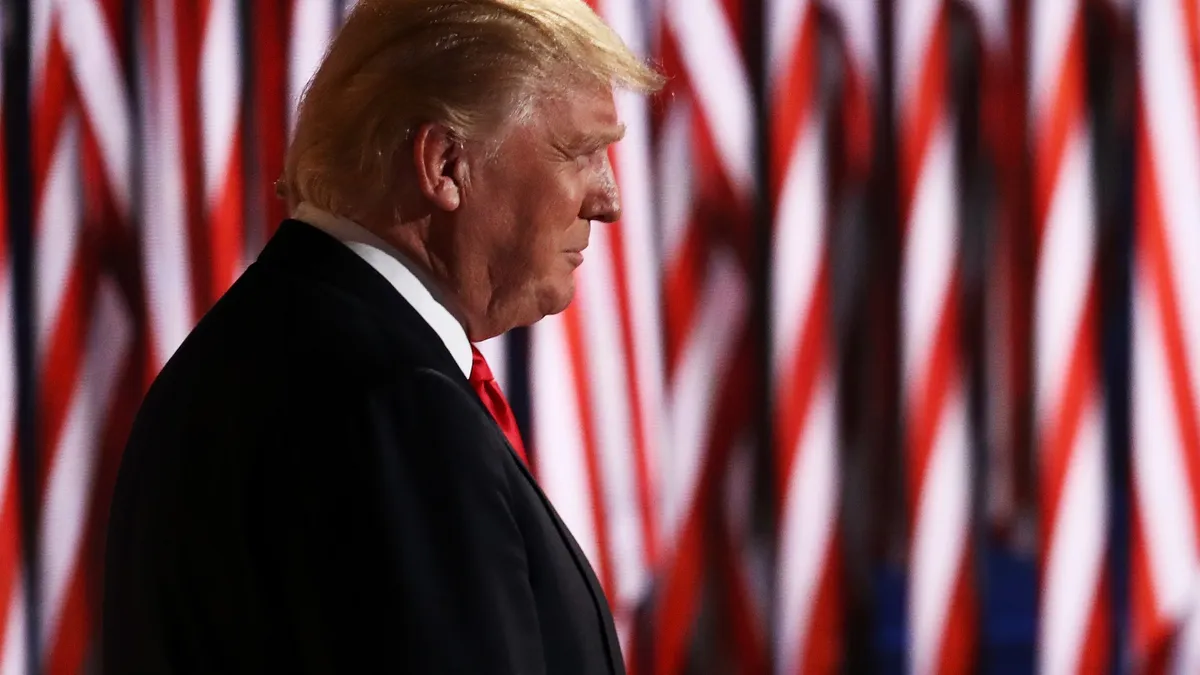Dive Brief:
- President Donald Trump announced via tweet June 18 he will meet with Chinese President Xi Jinping for "extended" trade talks at the upcoming G20 summit in Japan June 28 and 29. Trump previously said if Xi did not attend the G20, the U.S. would immediately levy tariffs on an additional $300 billion of Chinese goods, covering nearly all imports from the country.
- "Leader level engagement at last year’s G20 was critical to jumpstarting the talks," Clete Willems, a former trade negotiator for the Trump campaign, told Reuters, referring to the 2018 G20 meeting between Xi and Trump in Argentina. "It will be essential to managing the current political dynamic and getting the talks back on track once again."
- Meanwhile, in Washington D.C., more than 300 witnesses who represent major businesses and supply chain and manufacturing associations are testifying in U.S. Trade Representative (USTR) hearings to express their opposition to the proposed fourth tranche of tariffs. The hearings opened on June 17 and will close on June 25 before kicking off a week-long rebuttal period. Whether the tariffs are implemented will likely be subject to the results of the G20 negotiations.
Dive Insight:
While neither country's delegation has released formal commitments, businesses on both sides of the Pacific hope for a resolution, or at least a stabilization, of the unpredictable trade war. However, as the previous year's negotiations have shown, talks alone are not a guarantee. The last G20 meeting produced a 90-day truce, but the list three and list four tariff announcements came not long after the end of the truce.
The uncertainty has led to inventory stockpiling as companies try to rush goods to the U.S. ahead of the impending tariffs. While this has caused record-breaking traffic at some ports, and even capacity problems, the trend is beginning to slow down as demand has begun to soften and firms await the results of the trade talks.
Likewise, the recent proposition and scrapping of tariffs on Mexican imports has companies uncertain about where to go next in terms of materials sourcing and manufacturing.
"I started looking in Mexico, but I got scared off," Mark Schneider, CEO of Kenneth Cole Productions, a clothing company, testified in a USTR hearing. "Some sort of stability with this type of discussion would be really helpful. There’s no preparation for anything."
Companies that rely on China for electronics and machine parts also want a truce. David Baer, general counsel for domestic TV manufacturer Element Electronics, stated, "we will be forced to shut down the South Carolina factory and move our production offshore," as the cost of components will be too high to sustain its U.S. operations.
Apparel is another vulnerable category. In an interview with NPR, American Apparel & Footwear Association CEO Rick Helfenbein said 42% of apparel and 72% of footwear into the U.S. comes from China. "We've been threatened with this for some time ... And we don't exactly have a place to go, which means, quite frankly, that prices will go up, that sales will go down," Helfenbein said.














